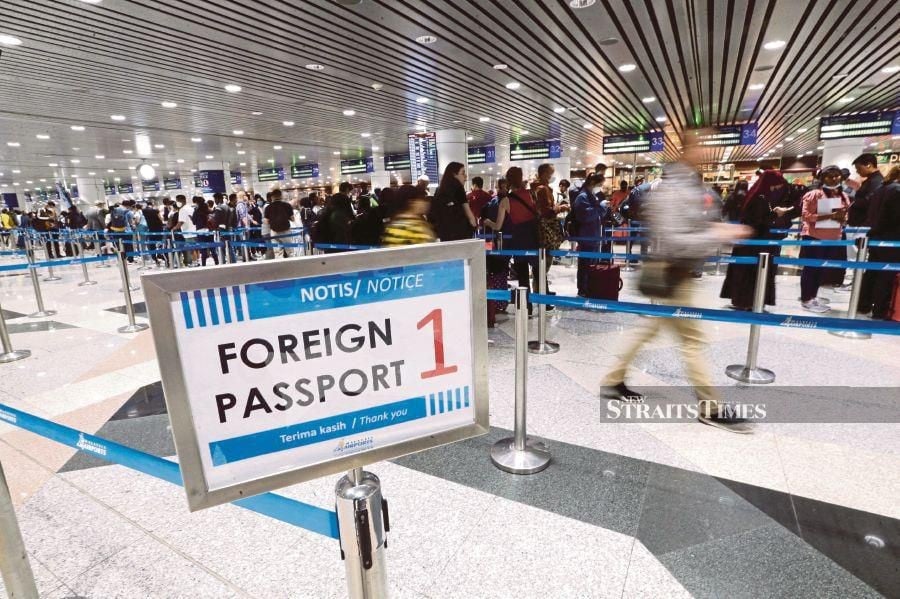KUALA LUMPUR: Family Frontiers and the Foreign Spouses Support Group have welcomed the government's decision to exempt foreign spouses from the point-based system for evaluating permanent residency (PR) applications.
When contacted, both non-governmental organizations expressed support for the Madani government's commitment to prioritising legitimate and genuine families.
They praised the move to consider factors such as the length of marriage and the number of children, which they believe promotes a more compassionate approach to family welfare.
"Family Frontiers appreciates the government's recognition of the challenges non-citizen spouses face under the old point-based system."
However, they cautioned that while the abolition of the point-based system is a positive step, it must be replaced with a clear, transparent, and standardised process.
They called for well-defined eligibility criteria, publicly available guidelines and consistent application procedures to ensure fairness and reduce inconsistency.
"The lack of clear, publicly available criteria would lead to arbitrary decision-making. To ensure transparency, the government must publish detailed guidelines covering eligibility requirements, necessary documentation, and the application process.
"These should be applied consistently across all branches and online platforms," it said.
Both Family Frontiers and the Foreign Spouses Support Group also expressed their willingness to collaborate with the government to create a more transparent and inclusive PR application process.
On the move to consider factors such as the length of marriage and the number of children, they said it is a positive step toward improving the welfare and stability of binational families, especially those from B40 communities.
"By prioritising the duration of marriage, the government can help ensure that spouses in genuine, long-term marriages have better access to permanent residence, reducing concerns over arbitrary barriers that have previously hindered family unity.
"The focus on the duration of marriage will also reduce concerns surrounding sham marriages, ensuring that spouses in genuine marriages will be prioritised. Additionally, recognising the presence of their Malaysian children supports family cohesion and minimises disruptions in the lives of children.
"We hope that spouses from all backgrounds will be able to have better access to PR."
However, the associations stated that the number of children as a criterion for eligibility should not be the primary factor for approval, as it would disadvantage childless binational couples.
"Their potential contributions to their families and Malaysian society should not be undermined just because they do not have children. For example, many non-citizen spouses are the primary caretakers of their Malaysian counterparts and not having access to PR in Malaysia negatively impacts their ability to stay in the country to care for their spouses.
"Binational families should not be penalised for factors beyond their biological control, such as being unable to have children or their family planning choices."
On Wednesday, the Home Ministry said it would exempt foreign spouses from the point-based system evaluation for entry permit applications to expedite approvals and prioritise family welfare.
The ministry said foreign spouses of Malaysian citizens will no longer be required to undergo the process, which previously evaluated applicants based on factors such as age, qualifications, and language proficiency.
Instead, factors such as the duration of the marriage and the number of children will be considered when evaluating applications, to safeguard the welfare of genuine and legitimate families.
Other changes were spouses of Malaysian citizens applying for an entry permit must have been married for a minimum of three years and must have held a social visit pass for at least one year.
The ministry added that these changes aim to ensure a more structured application process, making it more relevant to the needs of family institutions.
As for the processing time for new applications, the ministry said it was set at six months, providing applicants with greater certainty and expediting the procedure.
Both Family Frontiers and the Foreign Spouses Support Group said the six-month processing time will significantly reduce wait times compared to previous practices.
"Non-citizen spouses applying for PR have historically faced prolonged uncertainty, often waiting years, sometimes even decades without any assurance of approval.
"Research conducted by the Foreign Spouses Support Group highlights the severity of these delays, where 69 per cent of applicants have been waiting for more than four years, 20 per cent for six to eight years, and eight per cent for over a decade.
"The six-month timeline provides much-needed clarity and predictability for applicants. Additionally, ensuring that rejections come with clear reasons will allow spouses to understand the grounds for refusal and improve their chances in future applications.
"Furthermore a transparent appeal process must be established, outlining areas for improvement and the additional documents required for reconsideration.
"Clear follow-up channels should also be provided to ensure that the applicants are not left in uncertainty, forced to reapply without a clear understanding of their shortcomings. This shift represents an important step toward a more transparent and accountable system."






